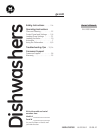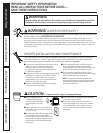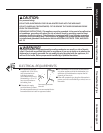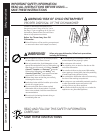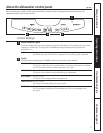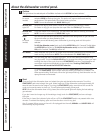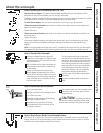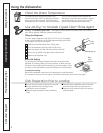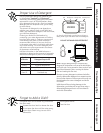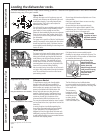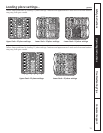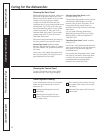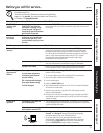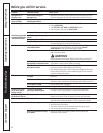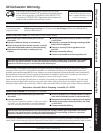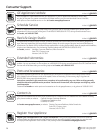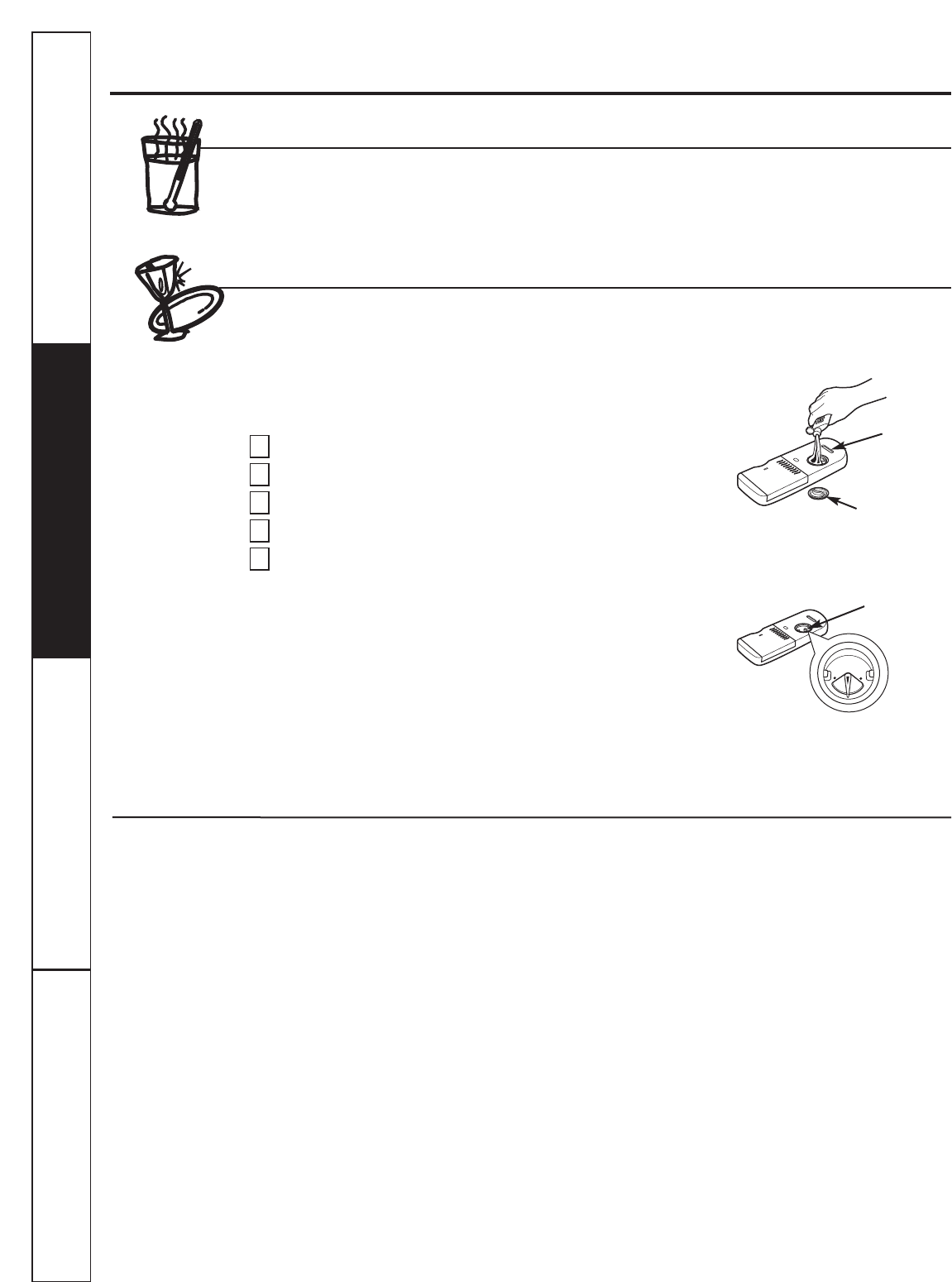
8
Operating Instructions Safety Instructions
Consumer Support
Troubleshooting Tips
Dish Preparation Prior to Loading
■No pre-rinsing of normal food soil is required.
■Scrape off hard soils, including bones,
toothpicks, skins and seeds.
■Remove large quantities of any remaining
food.
■Remove leafy vegetables, meat trimmings
and excessive amounts of grease or oil.
■Remove acidic food soils that can discolor
stainless steel.
Using the dishwasher.
Check the Water Temperature
Use Jet-Dry
®
or Cascade Crystal Clear
®
Rinse Agent
Jet-Dry
®
or Cascade Crystal Clear
®
rinse agents remove spots and prevent new film buildup on
your dishes, glasses, flatware, cookware and plastic.
Filling the Dispenser
The rinse agent dispenser holds 100 ml (3.5 fl. oz.) of rinse agent.
Under normal conditions, this will last approximately one month.
Try to keep it full, but do not overfill.
Make sure the dishwasher door is fully open.
Turn the dispenser cap to the left and lift it out.
Add rinse agent until the indicator window looks full.
Clean up any spilled rinse agent with a damp cloth.
Replace the dispenser cap.
Rinse Aid Setting
The amount of rinse agent released into the final wash can be
adjusted. The factory setting is at the midpoint. If there are rings
of calcium (hard water) spots on dishes, try a higher setting. If you
see foam in the dishwasher, move the indicator to a lower setting.
To adjust the setting
Remove the dispenser cap; then turn the adjuster counterclockwise
to increase the amount of rinse agent, clockwise to reduce the amount of rinse agent.
5
4
3
2
1
The entering water should be at least 120°F
and not more than 150°F, for effective cleaning
and to prevent dish damage. Check the water
temperature with a candy or meat thermometer.
Turn on the hot water faucet nearest the
dishwasher, place the thermometer in a glass
and let the water run continuously into the
glass until the temperature stops rising.
Indicator
window
Dispenser cap
Rinse
agent
adjuster
Less
More



